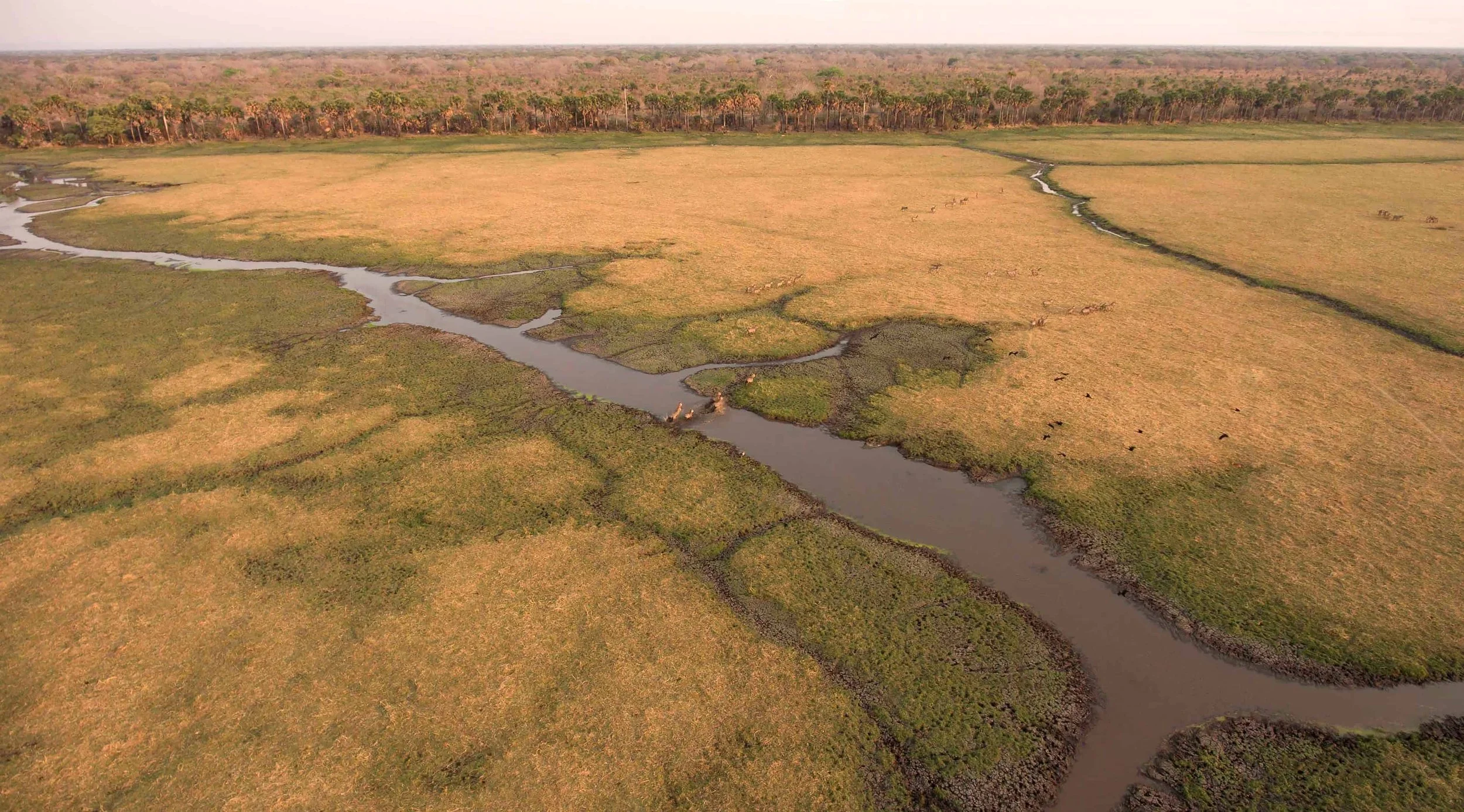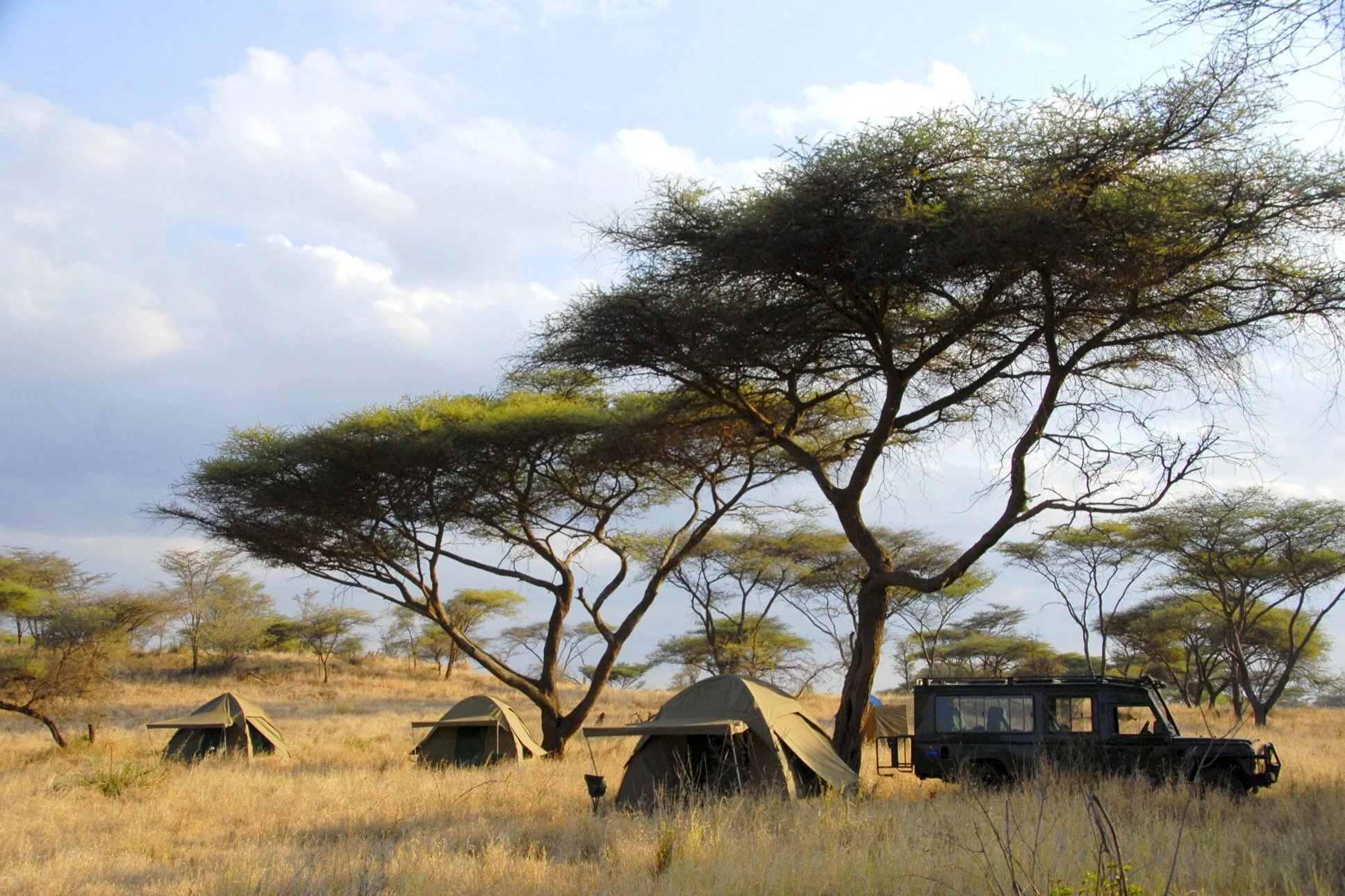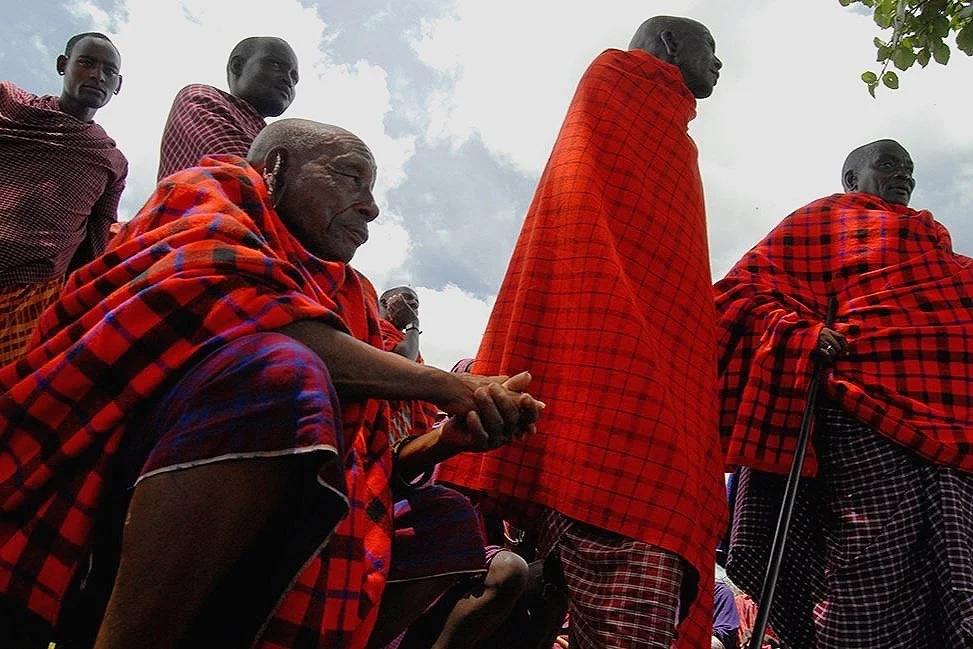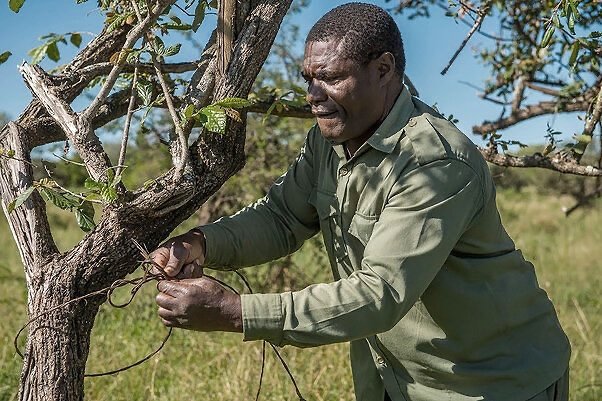Travel Light. Leave No Trace. Make a Difference.
A true safari should protect the land, not exploit it.
At Mark Thornton Safaris, we believe that how you travel matters just as much as where. Our conservation safaris are rooted in a deep respect for wilderness — not just in word, but in action.
We’ve spent the last 25+ years designing walking safaris that leave virtually no footprint, exploring areas where no roads or infrastructure exist, and refusing to compromise the “wild” in wilderness for the sake of luxury.
We don’t just offset emissions — we rethink the entire model of safari travel.
Leave No Trace: How We Walk the Talk
We believe our mobile, on-foot safaris represent the lightest impact safari travel in Africa. Here’s how we do it:
Carbon Offsets: All safaris are offset via Carbon Tanzania
No Charcoal: We never use charcoal, which contributes to deforestation
Carry In, Carry Out: All water is brought in — never sourced from local ecosystems
On Foot: Walking safaris have the lowest possible environmental impact
Solar Powered: We use solar heating for showers and solar lights at camp
Plastic-Free: No plastic bottles — our water is clean, tested, and transported responsibly
Local & Organic: Our food is locally sourced and often organic
Micro Camps: Just a 2–3 person crew, all transported in a single lightweight vehicle
Seasonal Movement: Rotating camp locations gives wild areas time to rest
No Heavy Vehicles: No lorries, no convoys — just one bush-adapted Land Cruiser
No Permanent Infrastructure: No roads. No lodges. No buildings. Just nature.
We believe this is what conservation safaris should look like. And for these efforts, we’ve been honored by National Geographic’s World Legacy Awards in the Conserving the Natural World category.
Working Throughout Africa
We’ve led conservation efforts across Africa — not from a distance, but from the ground up.
Here’s a snapshot of our work:
UNESCO Nomination Lead: Spearheaded the successful nomination for the Richtersveld Cultural & Botanical Landscape — now a UNESCO World Heritage Site
Coastal Reserve Development: Led the early-stage planning of a new protected area on South Africa’s remote northwest coast, with funding from UNDP
Biodiversity Hotspot Reserve: Partnered with Conservation International to help the Richtersveld community create a 160,000-hectare nature reserve
Environmental Reporting: Authored Zanzibar’s first-ever State of the Environment report, providing a baseline for policy and protection
These efforts reflect what conservation safaris mean to us: not just visiting Africa — but actively protecting it.
Ready to travel with meaning?
Join us on a conservation-driven safari that treads lightly, gives back, and takes you further into the wild than you ever thought possible.
Conserve land & support communities
For as long as we’ve guided safaris, we’ve worked hand-in-hand with local communities to help protect Africa’s wild lands and safeguard traditional livelihoods. Our approach is built on long-term relationships, mutual respect, and practical, on-the-ground conservation.
Our Current Conservation Partnerships
The Simanjiro Grazing Easement
A landmark initiative that protects two-thirds of the Tarangire ecosystem’s key calving grasslands from agricultural encroachment. This community-led agreement ensures both wildebeest migration routes and Maasai grazing traditions are preserved.
Maziwe Island Marine Reserve
We assist with sea turtle nest relocation and boat patrols on this fragile coral reef island off Tanzania’s coast. By partnering with local fishing communities, the project promotes marine biodiversity while creating sustainable livelihoods through conservation.
The Maasai Steppe
In collaboration with Maasai communities, we support land-use planning and zoning efforts that help maintain the integrity of this vital savannah ecosystem, home to elephants, lions, and other keystone species.
Yaeda Valley
We stand behind Hadza-led efforts to safeguard one of East Africa’s last hunter-gatherer territories. Our support strengthens land management, food sovereignty, and cultural preservation in this incredibly unique region.
We believe conservation must directly benefit people, not just wildlife. These are not side projects—they are central to how we operate and why we exist.
The Serengeti de-snaring project
Poaching in the Serengeti doesn’t always involve guns. The most devastating tool? Wire snares — silent, cheap, and deadly. These traps indiscriminately catch any creature that crosses their path: wildebeest, lions, giraffes, elephants, and more.
In 2017, a coalition of Frankfurt Zoological Society, Tanzania National Parks, and concerned safari operators (including us) formed a radical new response: mobile anti-poaching units made up of trained rangers and reformed poachers.
In 2018 alone, over 17,000 snares were removed.
It’s working. And every guest who joins us on safari helps fund this ongoing effort.
Real conservation safaris don’t just watch wildlife — they protect it.





